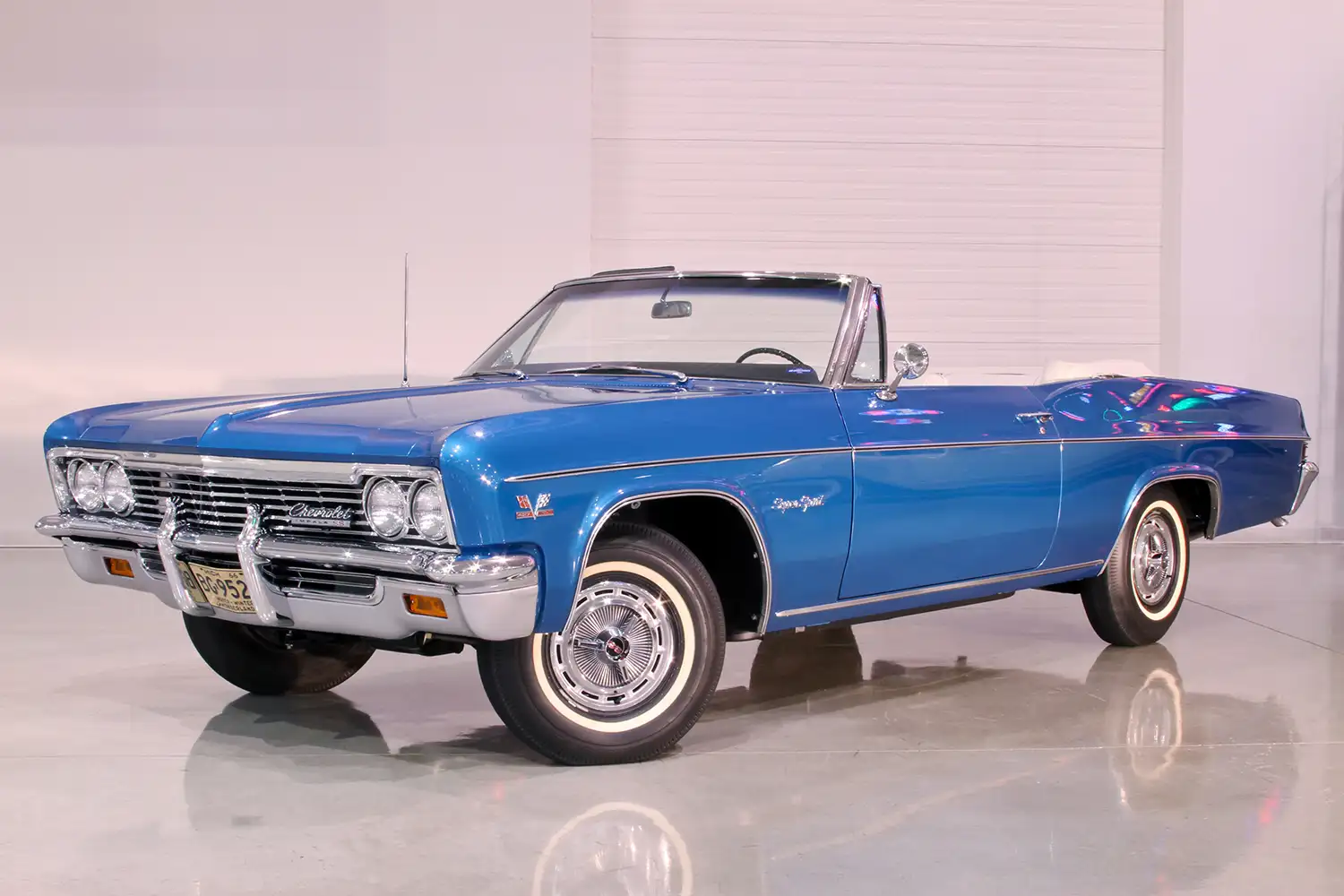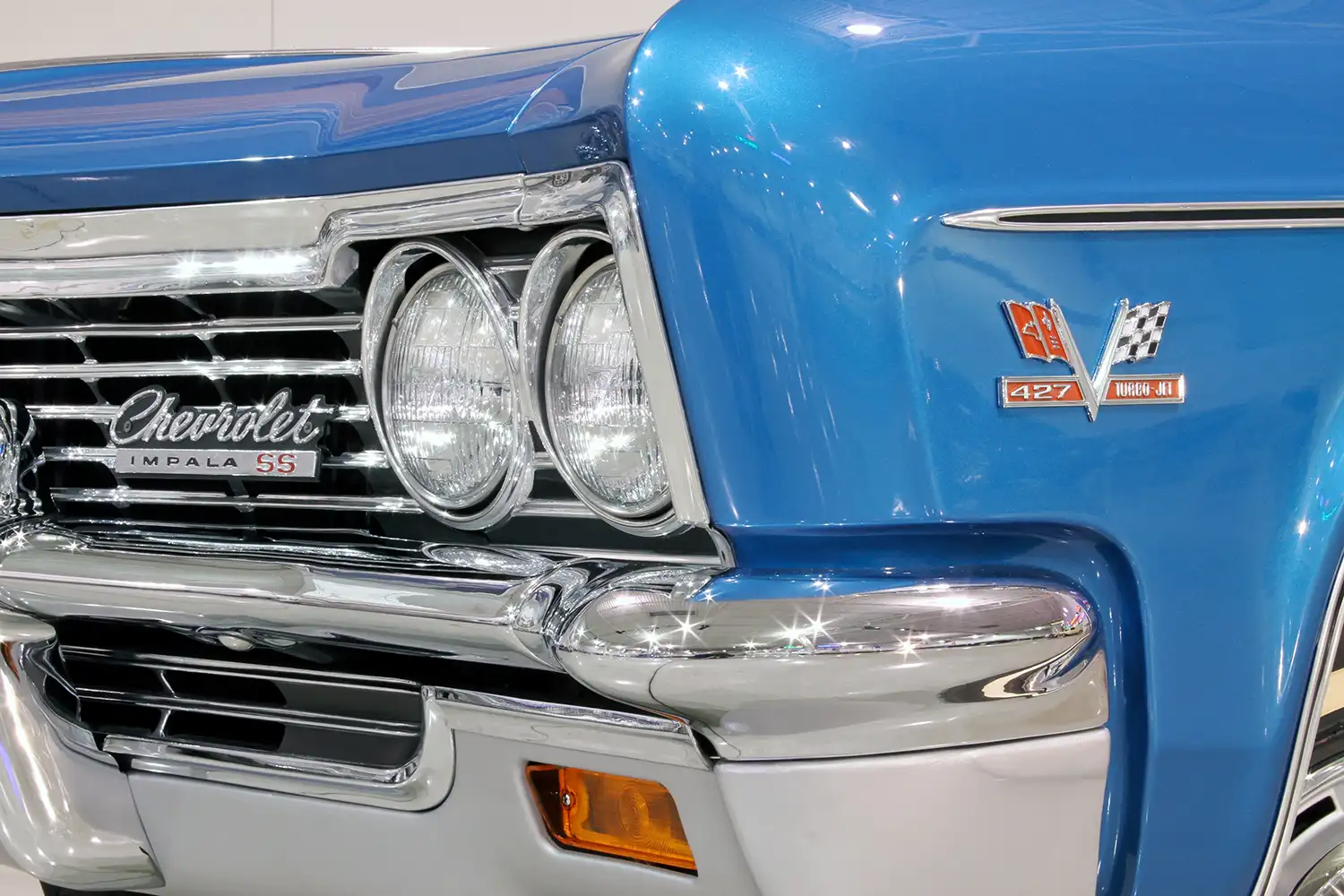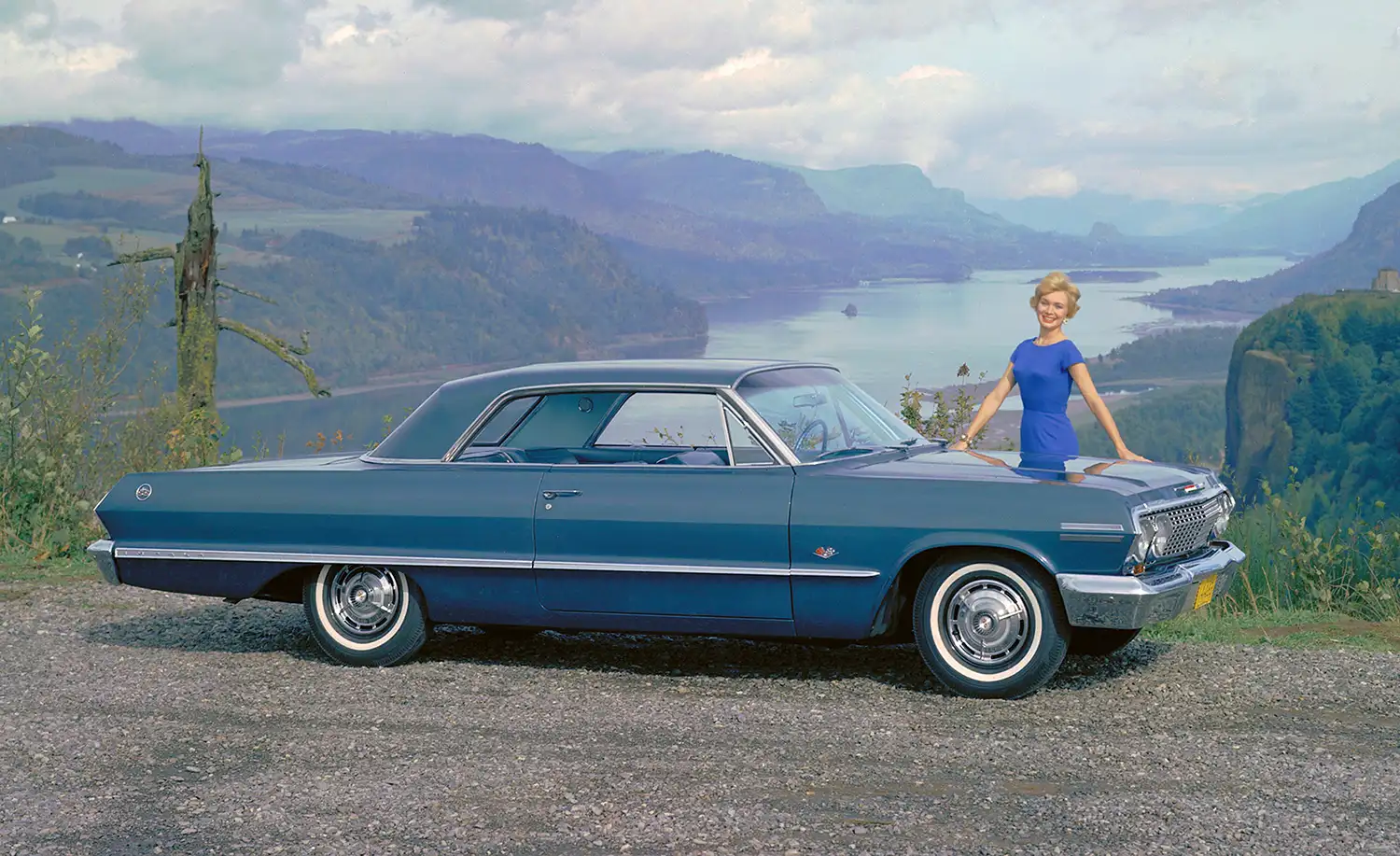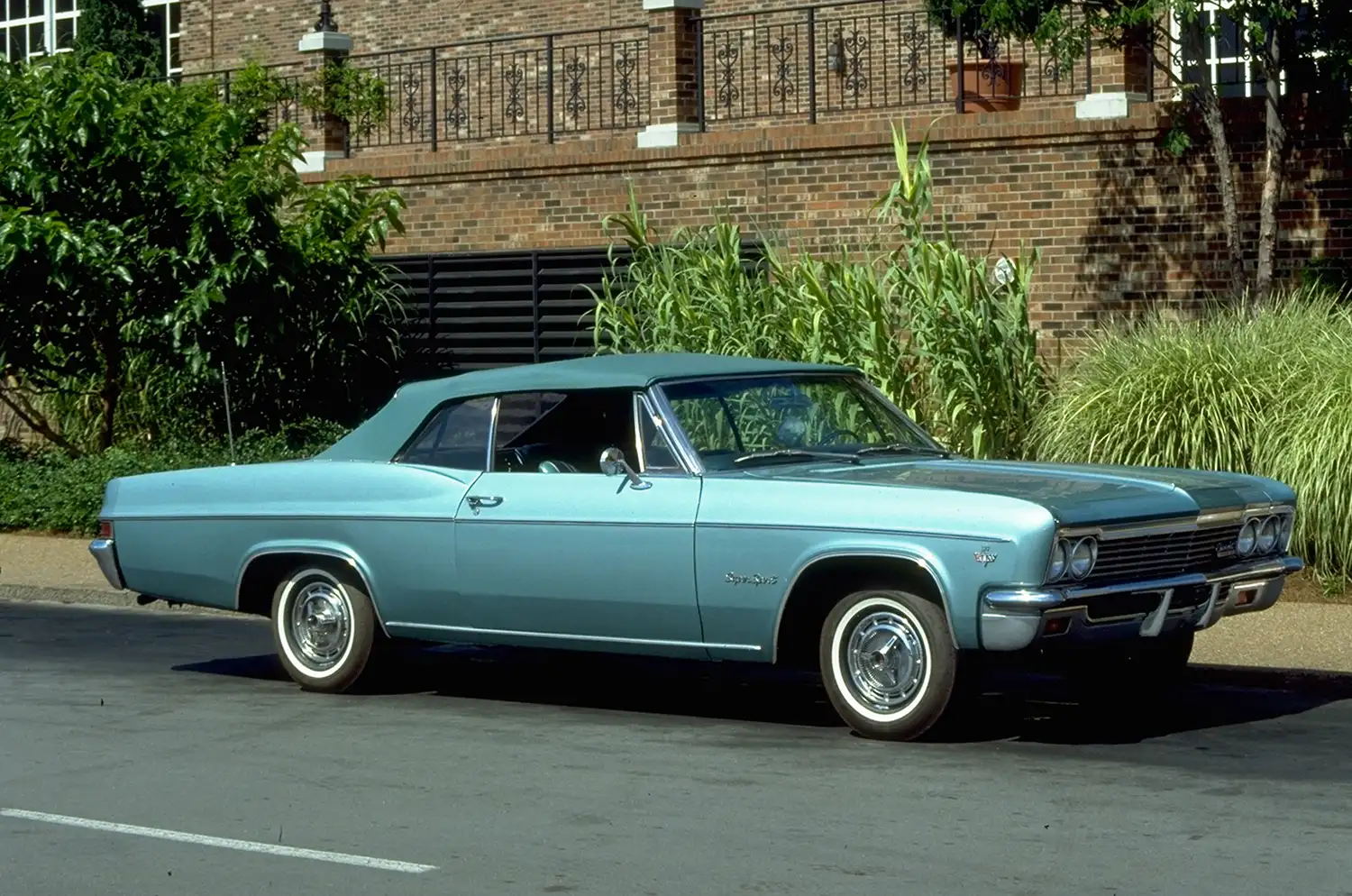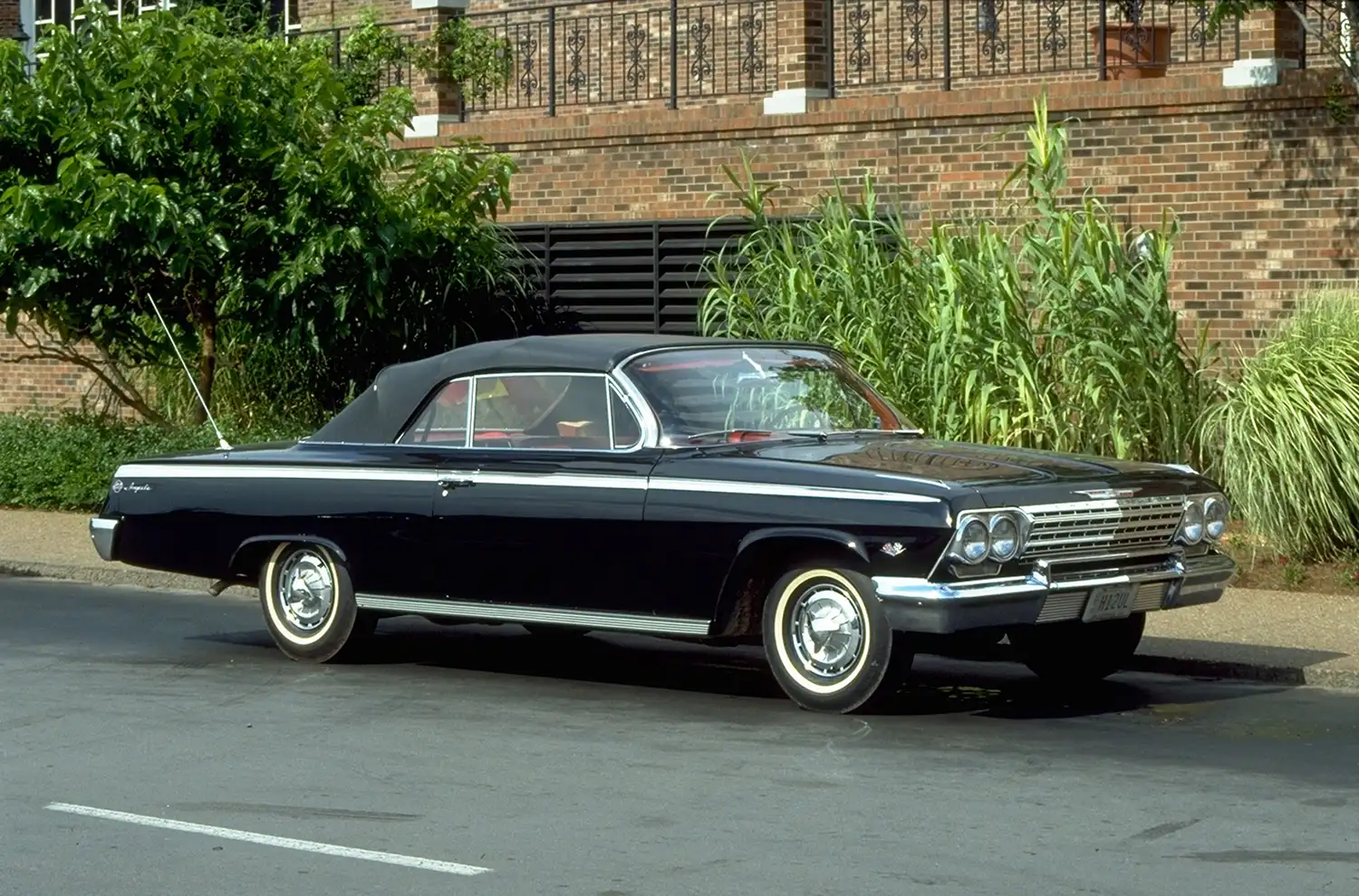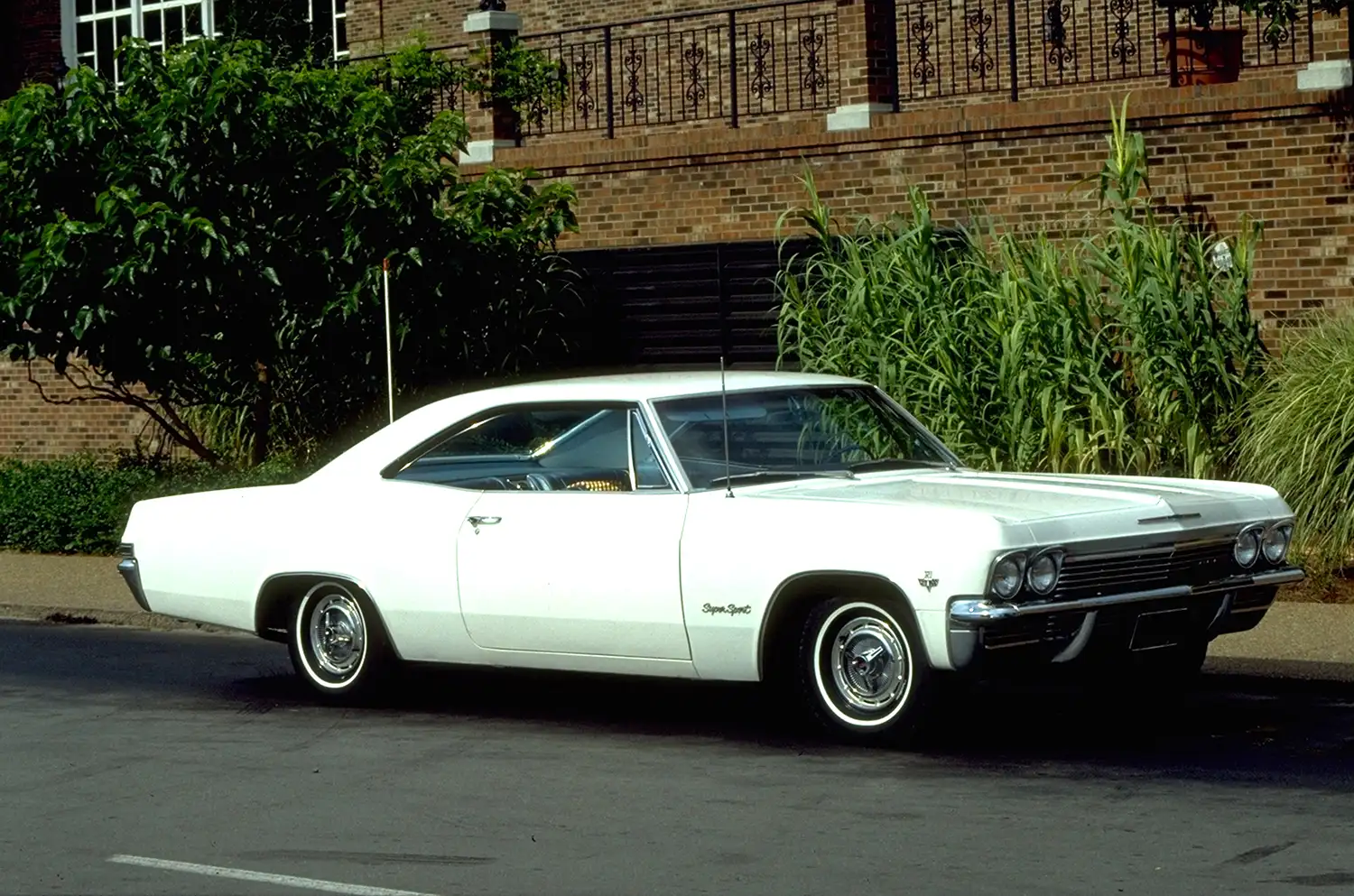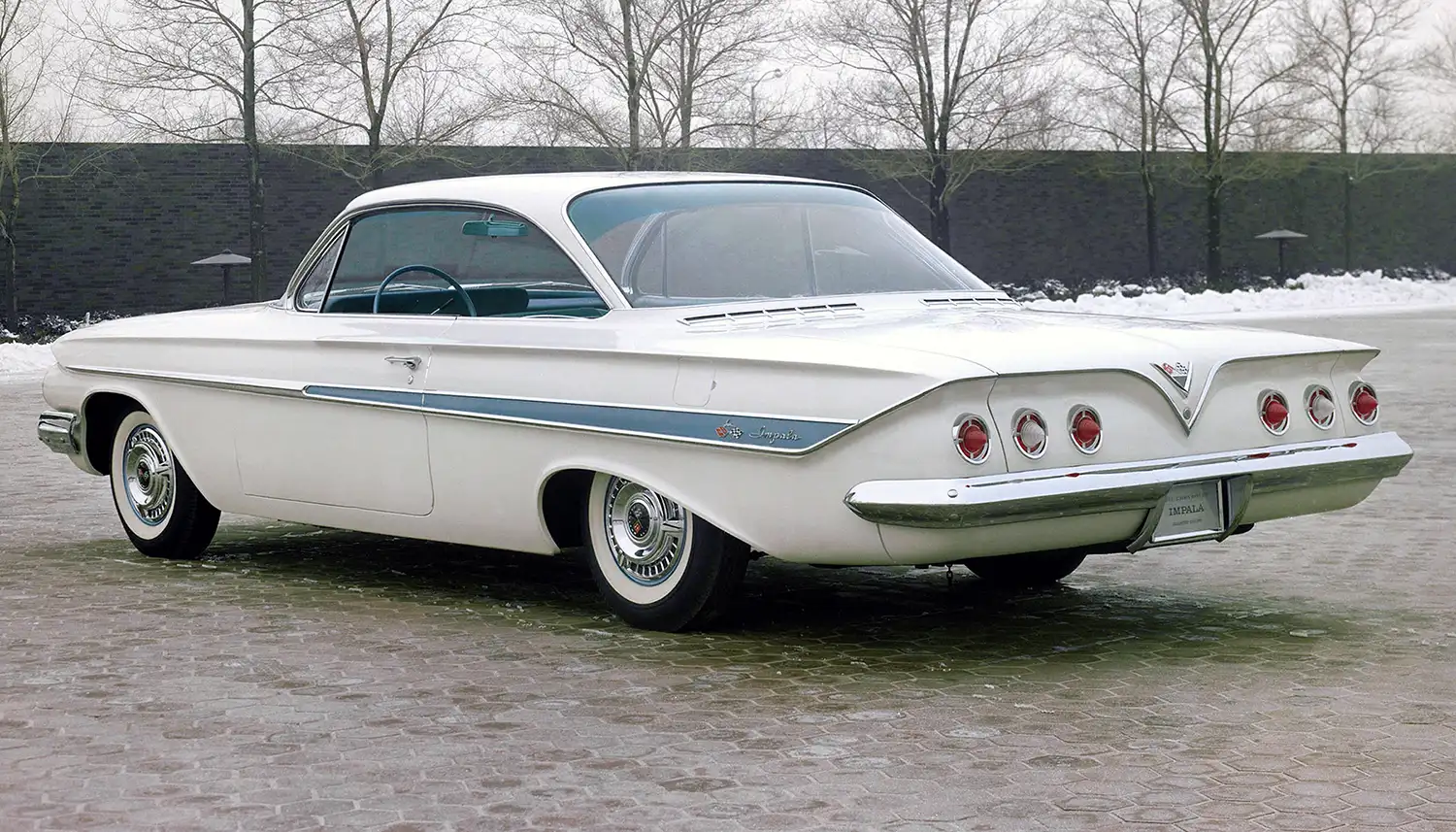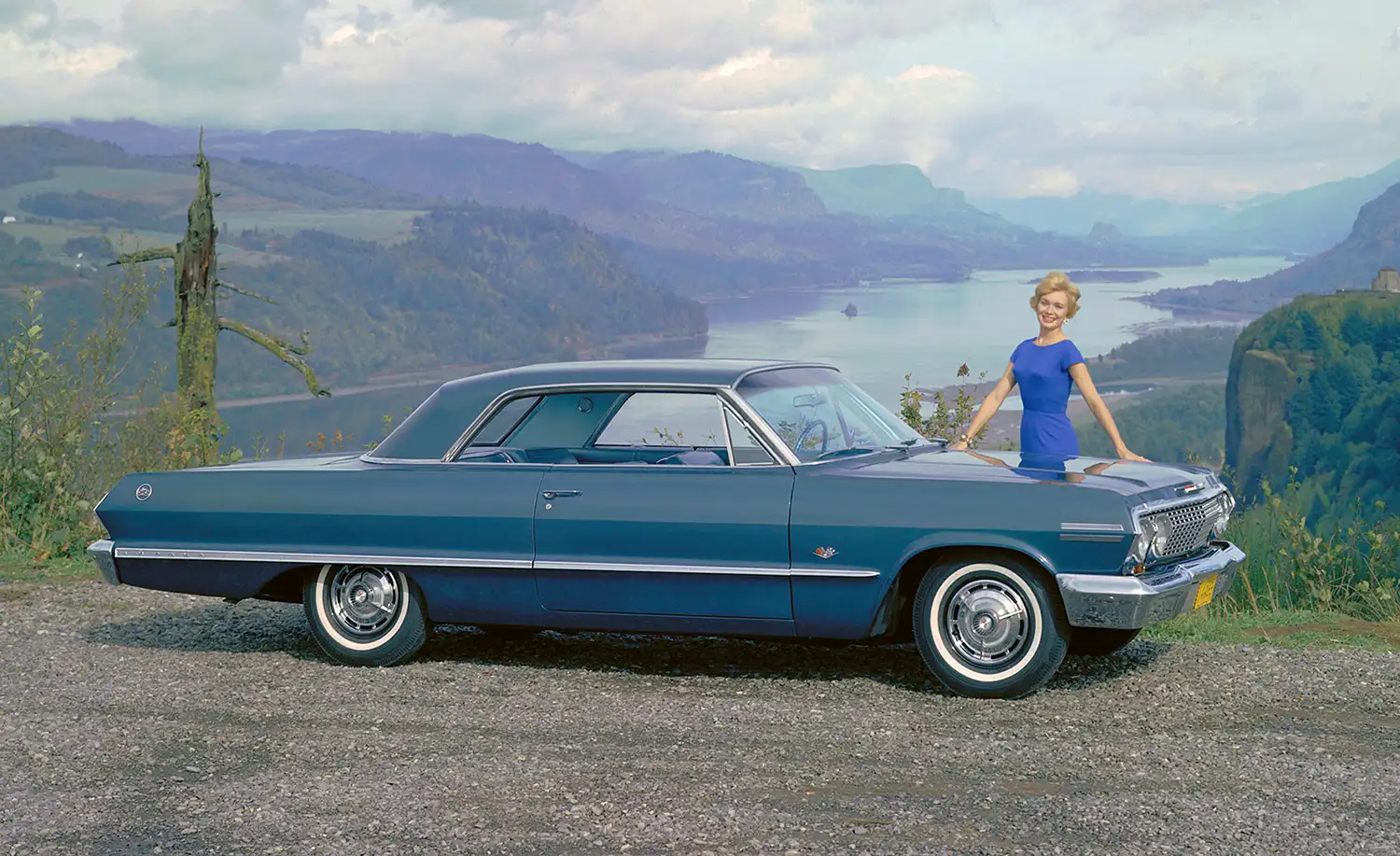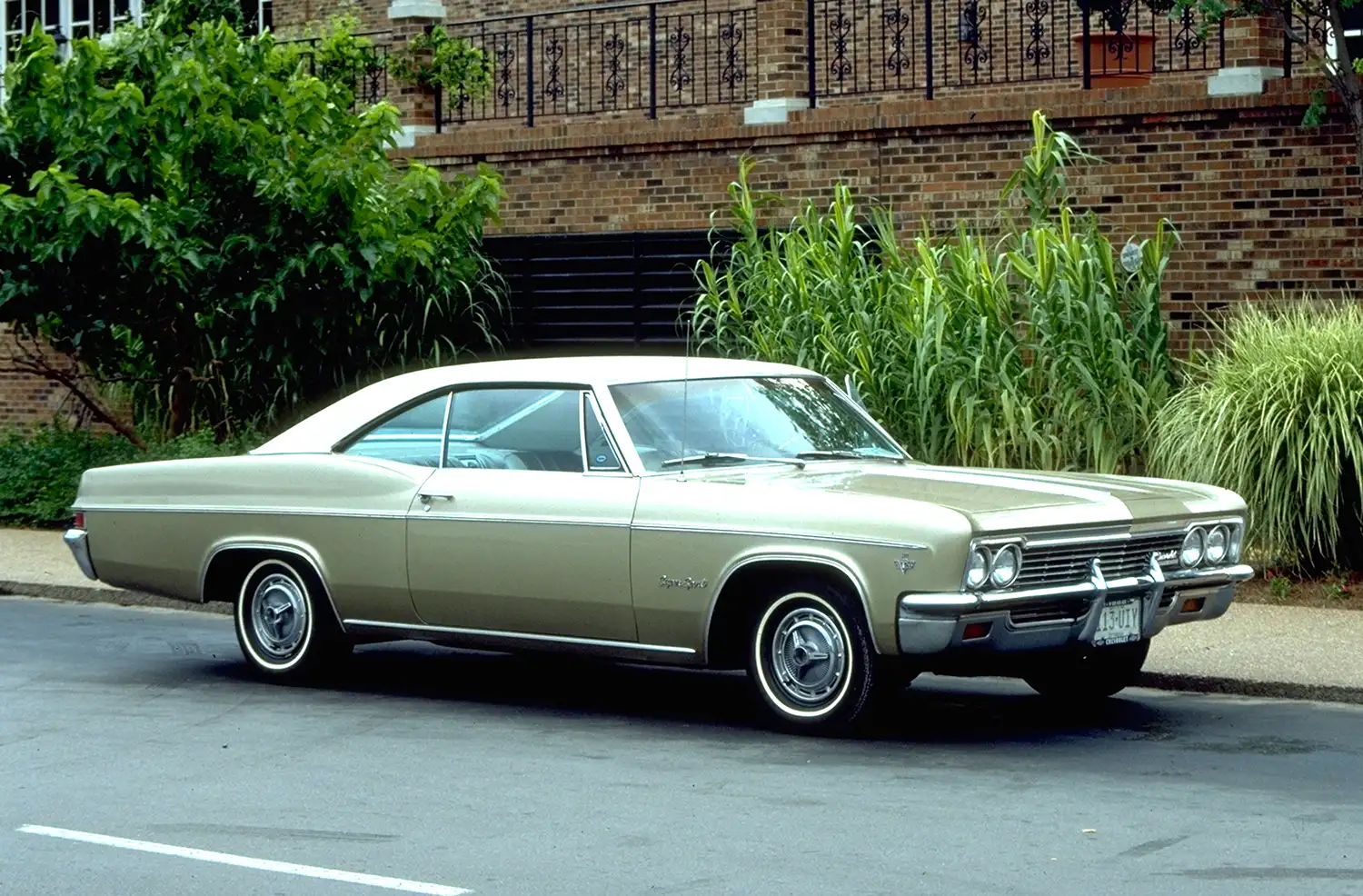
The Impala was introduced in 1958 as a new up-level, sporty trim package created for Bel Air coupes and convertibles. Unique to the model were its six taillights, which set it apart from lower trim levels with only two lights on a side. This classic styling cue would become its trademark. It was named for a southern African antelope. The Impala became a separate model in 1959 in both two and four-door versions and became the best selling car in the Chevy product line. For 1960, it became the best-selling automobile in the United States and held that position for the next decade. From 1958 until 1996, Impala sales were in excess of 13 million units, more than any other full-size car in the history of the automobile. In 1965, the Impala set an all-time industry annual sales record of more than 1 million units, which has never been bettered.
In 1965, Chevrolet introduced the Impala Caprice. Beginning with the four-door hardtop sedan body, Impala Caprices received unique upholstery, wood grained accents on the dash board and specialty pulls on the insides of the doors. A one year model, the Impala Caprice was reintroduced as the Chevrolet Caprice in 1966, taking the top position in the Chevrolet lineup. The Impala however, remained Chevrolet’s top-selling model until late 1970s. During the 1969 model year, for example, Impala production topped Caprice production by 611,000 units.
The 1971 redesign introduced the largest Impala. The Impala’s chassis would not be this extensively changed again until the introduction of the 2000 Impala. The Impala would remain Chevrolet’s best-selling model until 1977.
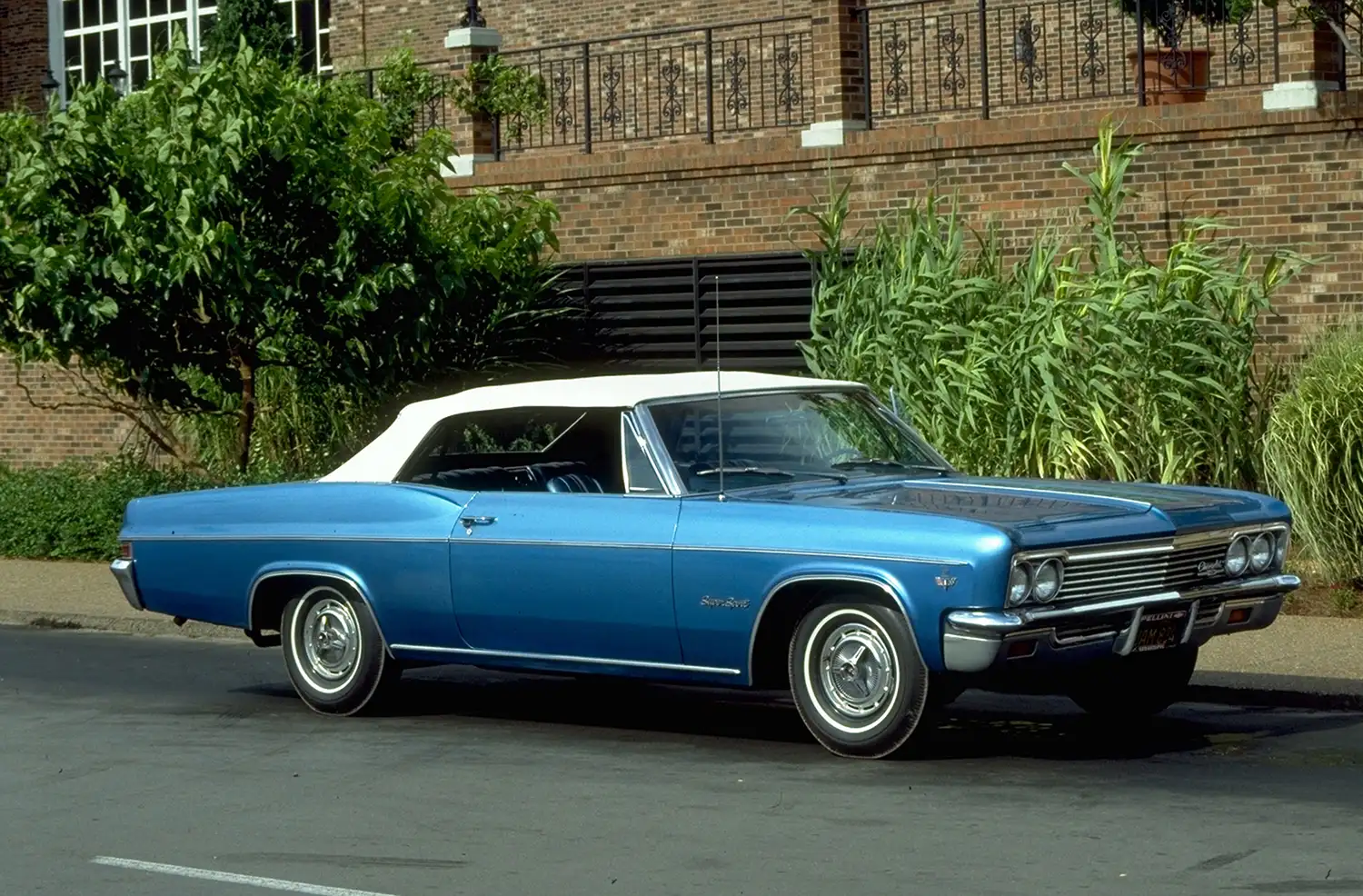
The Impala is often credited with starting the muscle car era, although the credit for that really goes to Pontiac when it released the GTO. In the 1960s, gasoline was cheap and consumer demand for power exceeded the need for efficiency. Buyers were clamoring for as much room, performance, amenities and quality as they could get for their dollars. Afraid it would lose out to an in house competition, Chevy released its muscle car, the SS, soon after. In 1961, the Impala SS (Super Sport) was introduced to the market. The SS badge was to become Chevrolet’s signature of performance on many models, though it has often been an appearance package only. The Impala’s SS package in 1961 was truly a performance package, beginning with the high-performance 348 in³ (5.7 L) engines (available with 305, 340, and 350 hp (230, 255 and 260 kW)) or the new 409 in³ (6.7 L), which was available with up to 425 hp. The package also inclued upgraded tires on station wagon wheels, springs, shocks and special sintered metallic brake linings. Starting in 1962, the Impala SS could be had with any engine available in the Impala, right down to the 235 in³ 135 hp inline-6. With one exception, from this point until 1969, the SS was an appearance package only, though the heavy-duty parts and big engines could still be ordered.
The exception was the Z24 option package available in combination with the standard Z03 Super Sport package. Starting in 1967, through 1969, buyers of Z24s Impalas got cars badged as “SS427” models. The SS427 included heavy duty suspension and other performance goodies, as well as a Turbo-Jet 427 in either L36 or L72 variations. Special SS427 badging inside and out were the rule, but few were sold, since “muscle car” enthusiasts were looking toward big-block intermediates like the Chevelle SS396 and Plymouth Hemi Roadrunners, which were lighter and subsequently faster off the line. Interestingly, Z24 cars could be ordered without the Z03 SS package, which meant SS427 equipment but no bucket seats or center console.
The Impala SS could be identified by SS emblems on the rear fenders and trunk lid. The Impala SS became its own series (separate model rather than an option package) for 1964. In 1968, the Impala SS once more became an option package rather than having its own model. In 1969, the Impala SS was only available as the Z24 (SS427), coming only with a 427 in³V8 of 390 or 425 hp. This was the final year for the Impala SS until 1994.
Article Source: Wikipedia (GNU Free Documentation License)
